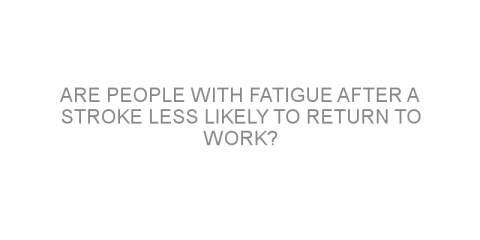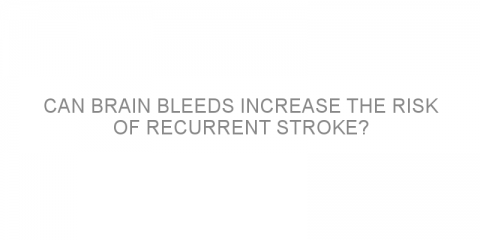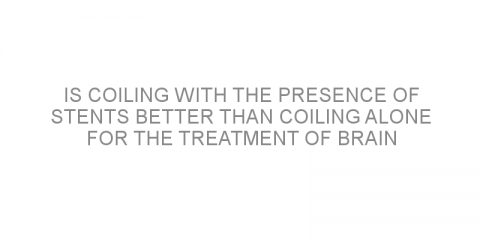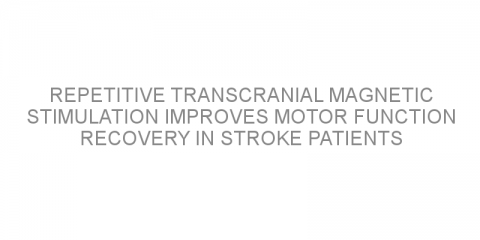In a nutshell This study looked at self-reported levels of fatigue in young stroke survivors 3,6 and 12 months after finishing rehabilitation. It found that patients with higher levels of fatigue were less likely to return to work up to 1 year after a stroke. Some background A stroke can affect many of the functions of the body. In...
Read MoreType of stroke-Intracranial hemorrhage (ICH) Posts on Medivizor
Looking for patients with stroke to test new combined treatment for movement deficits
In a nutshell This trial is examining the effectiveness of robotic rehabilitation and transcranial direct current stimulation (TDCS) in patients with stroke. The main outcome to be measured is the change in proprioception (awareness of where our limbs are in space, in the absence of vision). This trial will be conducted in Alberta, Canada. The details...
Read MoreLooking for patients with speech impairments after stroke to test brain stimulation treatment
In a nutshell This study is examining the effectiveness of brain stimulation on speech impairments after strokes. The main outcome to be measured will be a change in language function and patient communication effectiveness. This study is being conducted in California, the United States. The details Up to 40% of patients have difficulty with...
Read MoreCan brain bleeds increase the risk of recurrent stroke?
In a nutshell The authors of this meta-analysis attempted to determine whether cerebral microbleeds increased the risk of recurrent ischemic stroke and intracerebral hemorrhage in patients who had an ischemic stroke. They concluded that patients with cerebral microbleeds had a higher risk of recurrent ischemic stroke and intracerebral hemorrhage than...
Read MoreIs reducing warfarin in patients with brain hemorrhage subsequently putting them at risk of stroke?
In a nutshell This study investigated whether having a brain haemorrhage (a burst brain blood vessel) increases the risk of an ischemic stroke (blood clot in brain) among patients with atrial fibrillation (an abnormal heart beat). Some background A stroke occurs when there is a disturbance of blood supply to a part of the brain....
Read MoreAn invitation to participate in a trial evaluating the effectiveness of a graded motor imagery program to treat stroke patients
In a nutshell This trial located in Italy aims to evaluate whether a graded motor imagery program is more effective compared to other treatments in stroke patients. The outcomes to be measured are movement , ability to detect light touch and sense of position. The details Stroke occurs when the part of the brain does not receive enough blood...
Read MoreIs coiling with the presence of stents better than coiling alone for the treatment of brain aneurysms?
In a nutshell This study investigated the safety and effectiveness of coiling with stents compared to ordinary coiling for the treatment of brain aneurysms. Some background A brain aneurysm occurs when the walls of blood vessels in the brain weaken, causing the blood vessel to bulge with blood, which increases the risk of rupture. Blood...
Read MoreWhat is the quality of life in long-term survivors of stroke?
In a nutshell This study looked at the quality of life led by stroke survivors 10 years after their initial stroke occurrence. Some background A stroke occurs when there is a disturbance of blood supply to a part of the brain. This can be caused by a blood clot in the brain (ischemic stroke) or a burst blood...
Read MoreThe benefits and risks of oral antiplatelet therapy
In a nutshell The authors conducted a review of oral antiplatelet therapy in patients with acute ischemic stroke. Some background In people with acute ischemic stroke, platelets (small cell fragments in the blood) become activated and can cause blood clots to form and block an artery in the brain, resulting in damage to part of the brain. Such...
Read MoreRepetitive transcranial magnetic stimulation improves motor function recovery in stroke patients
In a nutshell This meta-analysis (an analysis of data combined from several similar studies) investigated the effect of repetitive transcranial magnetic stimulation (rTMS) on upper limb (arm and hand) motor function in patients recovering from a stroke. Some background Many stroke patients suffer long term disabilities, such as impaired motor...
Read More










